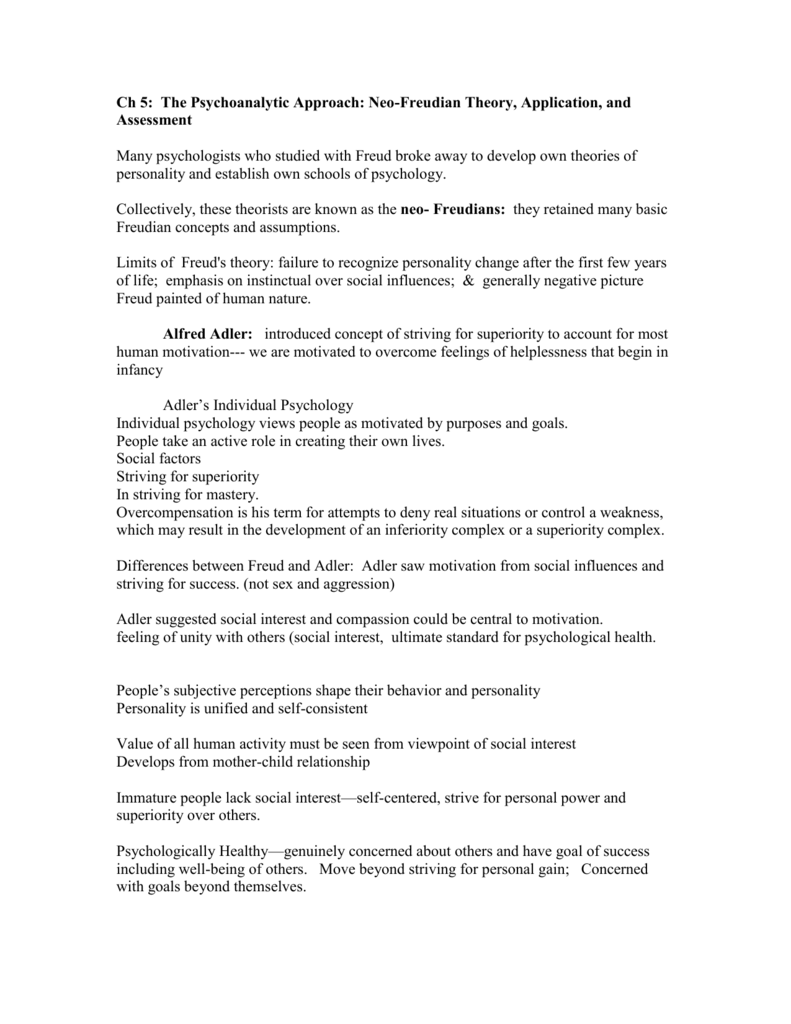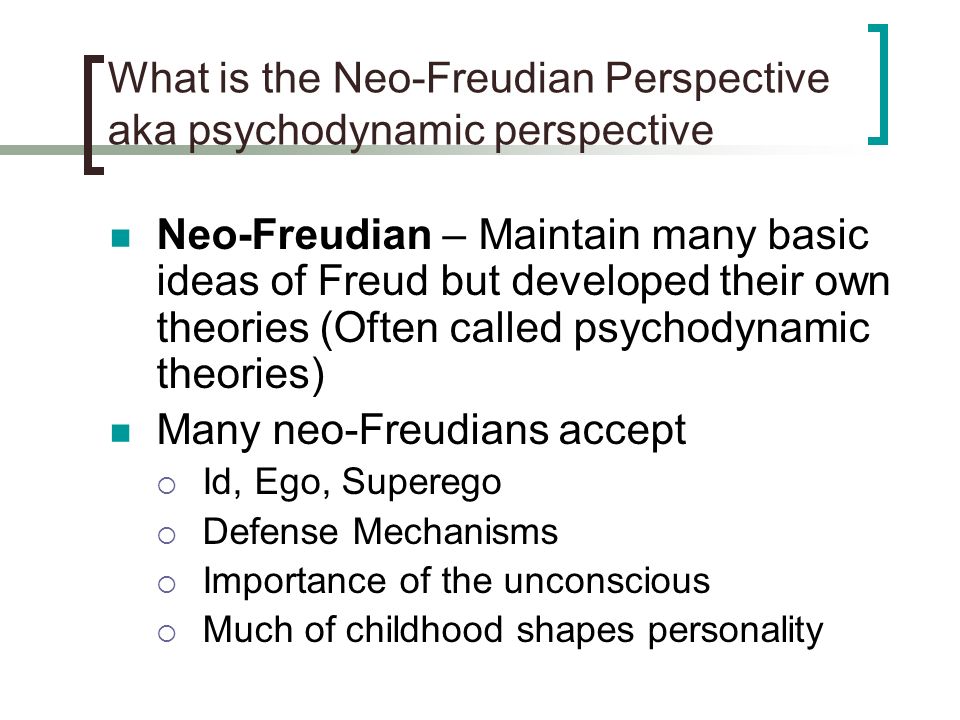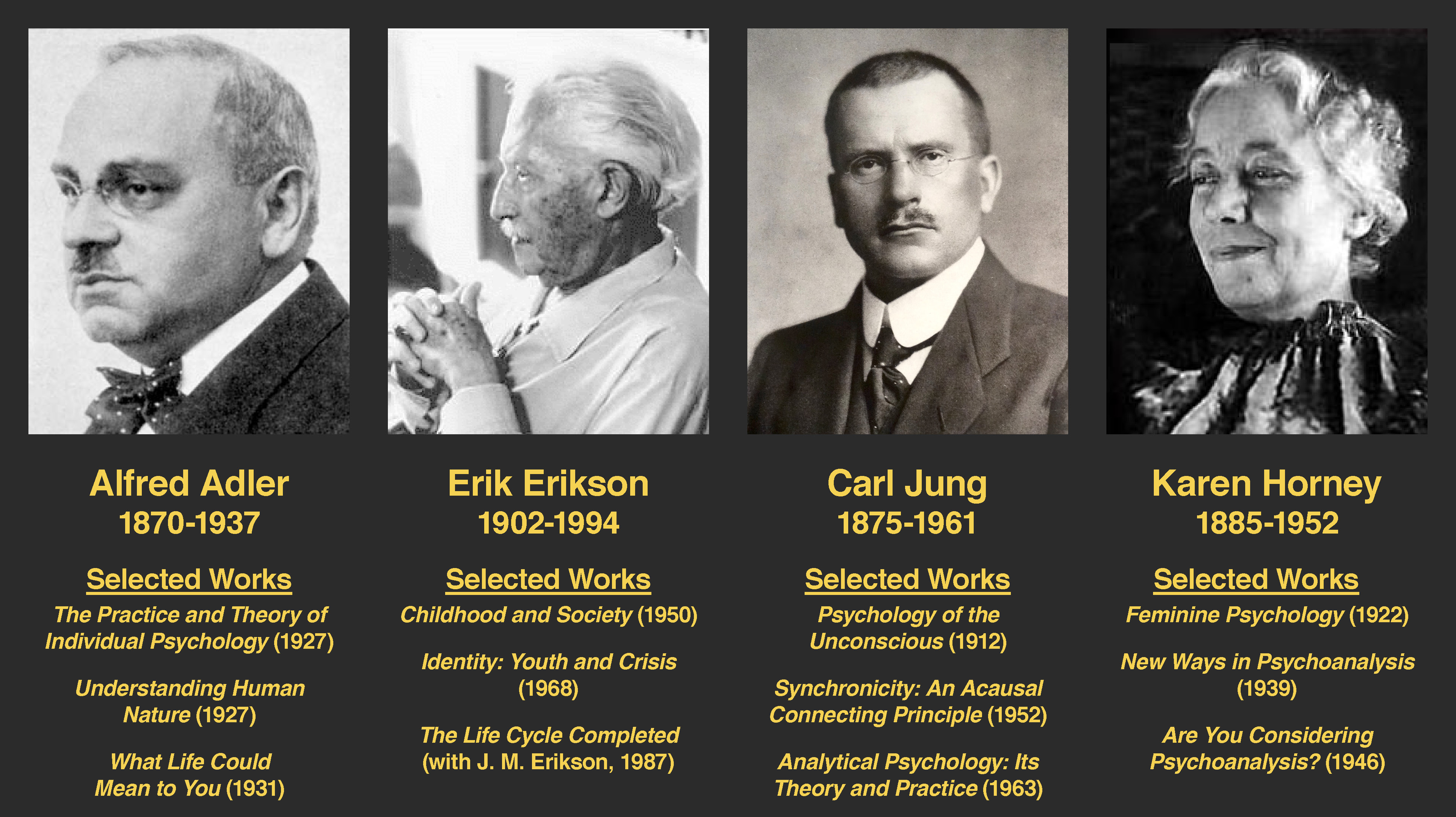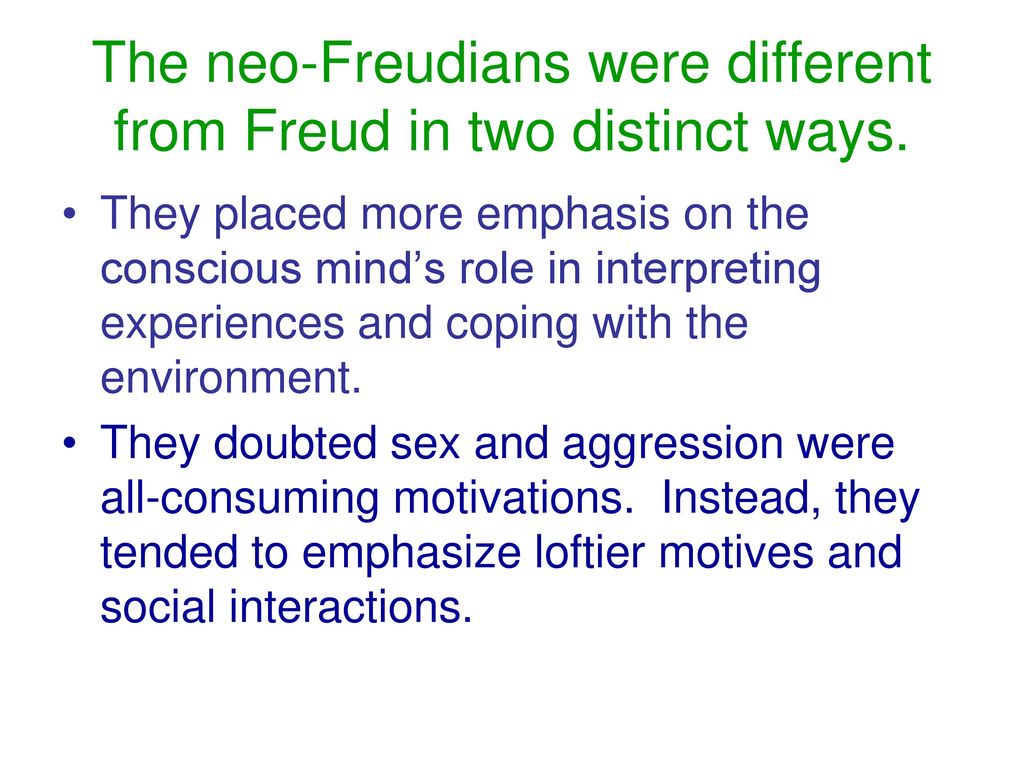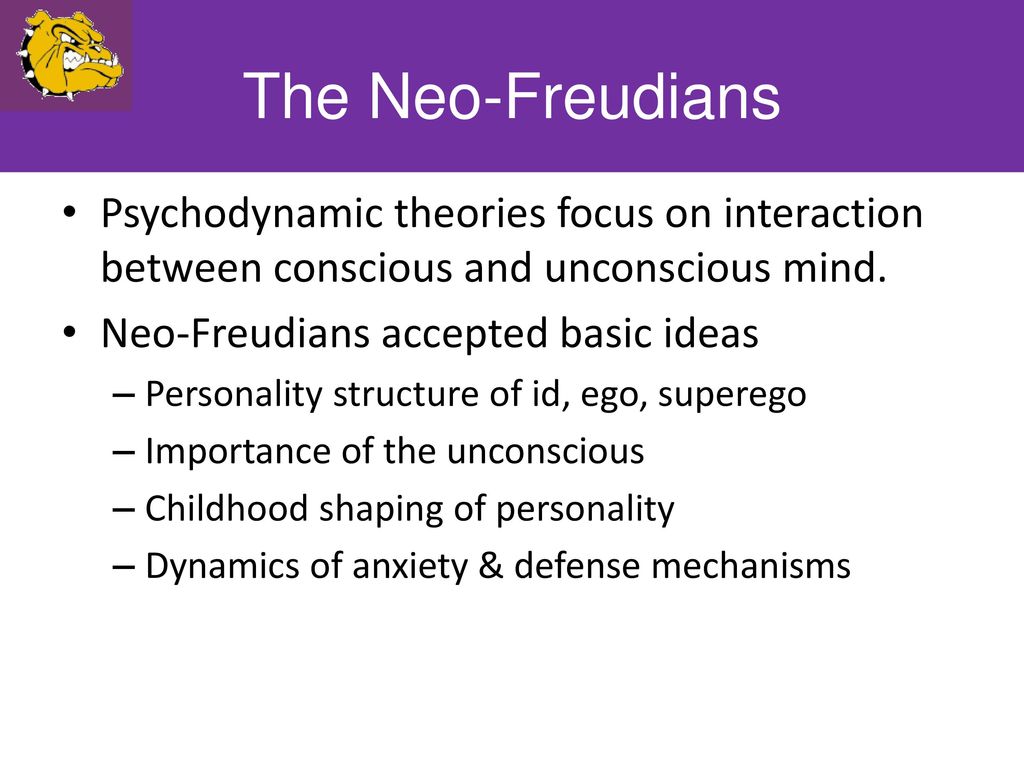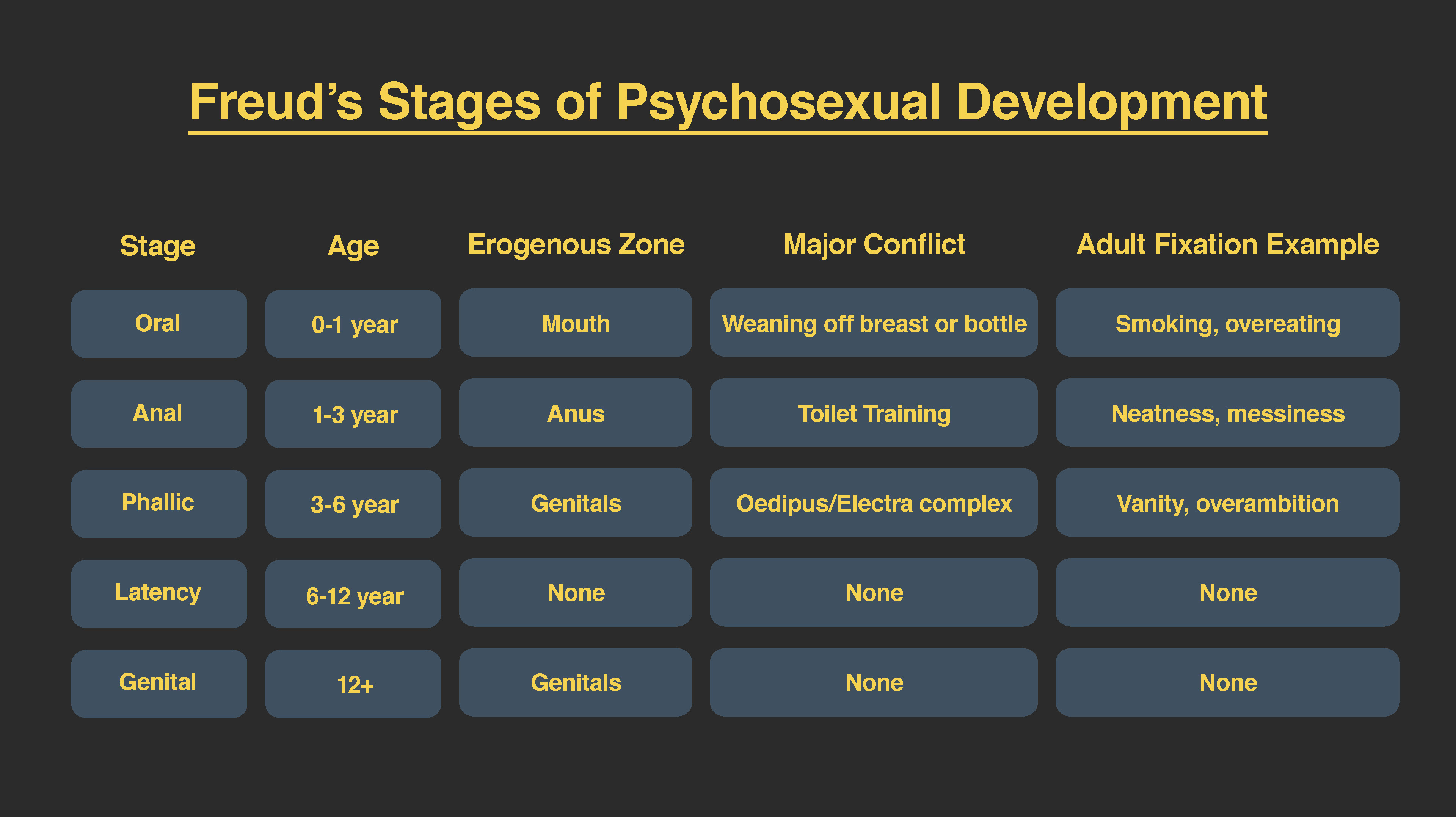Neo-Freudian psychology is a school of psychology that emerged in the early 20th century as a response to the theories of Sigmund Freud. While Freud's theories were highly influential, they were also controversial and some people felt that they did not adequately address certain aspects of human psychology. The Neo-Freudians were a group of psychologists who sought to build upon and expand upon Freud's ideas, while also incorporating their own insights and perspectives.
One of the main criticisms of Freud's theories was that they focused heavily on sexual and aggressive impulses, and that they did not adequately address the role of social and cultural factors in shaping personality and behavior. The Neo-Freudians sought to address this by incorporating a greater emphasis on social and cultural factors in their theories.
One of the most well-known Neo-Freudians was Alfred Adler, who developed the theory of individual psychology. Adler argued that individuals are motivated by their desire to compensate for feelings of inferiority, and that this drive for superiority is the primary force behind human behavior. Adler also emphasized the role of social and cultural factors in shaping personality and behavior, and argued that people are influenced by their relationships with others and their place in society.
Another important Neo-Freudian was Karen Horney, who developed the theory of feminine psychology. Horney argued that traditional Freudian theory overemphasized the role of sexuality and aggression in shaping personality, and that it did not adequately address the unique experiences and challenges faced by women. Horney argued that women are often socialized to be submissive and to repress their own desires and needs, and that this can lead to feelings of frustration and resentment.
Carl Jung was another important figure in the development of Neo-Freudian psychology. Jung was influenced by Freud's ideas, but he also developed his own theory of the collective unconscious, which argued that there are deep, universal psychological patterns that are shared by all humans. Jung also emphasized the role of spirituality and religion in shaping personality and behavior, and argued that people have a deep need for meaning and purpose in their lives.
Overall, the Neo-Freudians made important contributions to the field of psychology by expanding upon and challenging the ideas of Sigmund Freud. Their theories helped to shift the focus of psychology from a solely biological perspective to one that also recognized the influence of social and cultural factors on human behavior.
